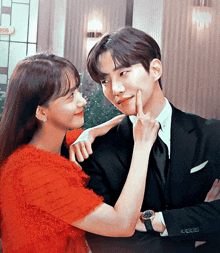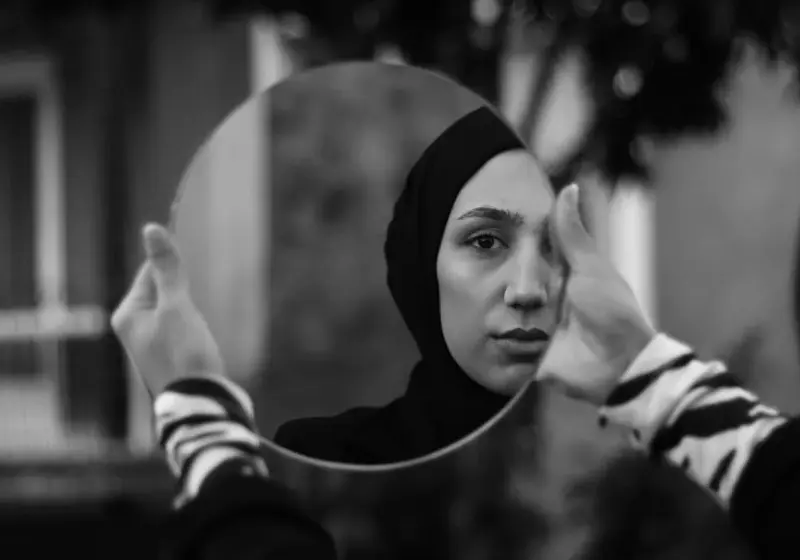What is Islamophobia, exactly? According to Peter Hervik, in the International Encyclopedia of the Social & Behavioral Sciences, it is a concept that refers to ‘xenophobic’ reactions to the Islamic faith and to Muslims. The xenophobic association would yield a ‘fear of Islam,’ but it is in reality a xeno-hostility – a hostility toward Islam and Muslims.
A hot topic nowadays for sure, especially with the commencement of the 2022 FIFA World Cup hosted by Qatar, and if you’re someone who keeps up with the latest news, I’m sure you have a few ideas already. This article could not possibly list every Islamophobic incident that has been occurring (there are simply too many) but attempts to give an idea of how widespread Islamophobia really is.
People living in the West were asked whether or not they believe Western societies treat Muslims with respect or without. A survey done shows that 52% of those in the United States believe Muslims do not get treated with respect. 48% in Canada, 38% in the United Kingdom, 34% in Germany, 30% in France and 28% in Italy.
Between 2000 and 2001, after 9/11, hate crimes against Muslims increased a whopping 1700%, the FBI reports. In addition to that The Conversation, an academic online magazine reports their findings that compared to 84% of the articles in their random sample, the average article referencing Muslims or Islam in the United States is more disparaging. This implies that it would take reading six pieces in American newspapers to locate even one that was as disparaging of Muslims as the average article.
Furthermore, anti-Muslim hate crimes rose 67% in 2015 and 50% in 2016. The spike was directly parallel with the election of President Donald Trump, who was openly anti-Islam, among many other things. One of his first actions taken was signing an executive order that banned seven Muslim-majority countries from entering the United States.
We threw a lot of numbers at you, but this is just so you can have a basic idea of how widespread Islamophobic sentiment is and how common it is.
Let us slide into your dms 🥰
Get notified of top trending articles like this one every week! (we won't spam you)The Uyghur Genocide
An unknown number of Uyghur Muslims are currently detained in internment camps in which they are subjected to a number of horrifying torture methods, some of which include: forced sterilization, sexual violence, forced separation of children, forced religious conversions and practices, along with many other unforgivable crimes against humanity. Until now, the UN has not been able to determine the exact number of detainees or even release an official death toll.
However, as of 24th May 2022, the BBC has estimated a number of 12 million Uyghurs in Xinjiang, where the detainment camps are held.
This is the largest-scale detention of ethnic and religious minorities since World War II, and it has been ongoing since 2014, only publicly discovered in 2016/2017. When Chinese officials are directly asked, they ultimately deny all claims being made. “Voluntary, harmless professional vocational training institutions”. That's how these camps were described in October 2018 by the XUAR chairman.
What makes this claim even more outrageous is that there are leaked photos of what is happening inside the camp on the internet. Any person with half a vision can clearly see, this is not some voluntary camp.
If this genocide has now been public knowledge for almost 7 years now, what is being done about it, you may ask? Western nations have been quick to denounce China's mistreatment of the Xinjiang region. The Uyghur Human Rights Policy Act was passed by the US Congress in 2020.
According to this law, "human rights breaches against Uyghurs, ethnic Kazakhs, Kyrgyz, and other Muslim minority groups in Xinjiang must be tracked and reported”. This is simply a formality, without any actual action taken. However, we cannot blame them for no action being taken, as China’s political position is very strong.
China's membership in the Permanent Five is tied to the lack of substantive UN action. Granting the nation the power to veto and stop action on the topic. Nevertheless, a country’s position should never be the excuse we make for the actions taken in the torture of those who are flesh and blood before they are any type of specification.
Be it religion, race, gender, or anything else. This is a humanitarian crime.
Take the Quiz: Which Indian city is the perfect holiday spot for you!?
Let's match you with an Indian city that you would love!
Hijab Debate
Hijabi women are oppressed.
A woman shouldn’t be told to cover up.
It can be dangerous to allow women to wear hijabs.
These are all just a few examples of how the hijab is cast in a negative light. One of the more viral issues over the hijab that has surfaced recently is the case of Masha Amini. A young Iranian woman was killed by the morality police in Iran for not wearing her hijab properly.
The media exploded with comments that blamed the hijab and not the real issue: the lack of choice given to women by the Iranian government. Some women took off their hijabs in support of Masha Amini. Now when this happens in Iran, it makes sense because they are directly challenging the government. However, when there is an insane number of people who actively harass hijabi women to take off their scarves in support of Masha Amini, this is when one can start to question whether the intention is laced with prejudice.
Riddle me this. Would you ever be obsessed with what headgear another person wears? As of 2022, there are 16 countries that have banned the burqa.
France (2010), Belgium (2011), Bulgaria (2015), Chad (2015), Congo (2015), Gabon (2015), Austria (2017), Denmark (2018), Sri Lanka (2019), Netherlands (2019) and even neutral Switzerland (2021). If you ask me, it was sort of pointless to ban the burqa (niqab, the face veil to be exact) since wearing masks in this day and age is encouraged. So it can’t possibly be the fact that covering your face is the problem. We wonder what it could be.
To understand the hijab ban in France, we need to look at the history of Iran’s political use of the Hijab. During the Kashf-e-hijab, Iran actually banned the hijab. Many complied with this and there were many who didn't.
This raises the question. Is the problem really the hijab? There were protests about being able to wear the hijab just like the protests for the right to wear one in France.
Being obsessed with the modesty of women and the way they are dressed is nothing new. We believe that a person should get the autonomy to dress how they choose. No one really asks the women involved how they feel.
Let's start with that. Why don't we?
Allow us to introduce you to a new term. Hijabophobia. It is considered a gender-specific type of Islamophobia, or simply "hostility towards the hijab". The term is applied to discourse based on colonial representations of Muslim women as victims oppressed by misogynistic cultures in academic circles.
In addition, Islam is not the only religion to implement the concept of hijab. Some of these include Christianity, Judaism, Hinduism, Sikhism, and more. So, why is it that the media does not hesitate to berate a Muslim woman for wearing her hijab but gives all the other religions that have head coverings a pass? It’s further proof that the hijab here, or rather head covering, is really not the problem.
Muslim women have been instrumentalized over and over again (since the colonisation of the middle east to be exact but that’s a story for another day) to push a particular political agenda. Stop infantilizing women as if they cannot choose for themselves. In Iran, people are protesting their right to choose, their right to be freed from groups of men who use religion to push their own personal propaganda. This idea is very well explored and explained by Alice Capelle in this video.

La Source des Femmes (2011)
World Cup
I’m sure we have all been hearing the insane buzz about the World Cup before it even started. Now, whether or not you actually have been following it, you definitely have heard some aspect of it from either TV, social media, or whatever you fancy. There were many cynical claims and concerns about the World Cup being in Qatar this year.
Can you guess why? That’s right, because it’s an Islamic state. Qatar has repeatedly stated that it welcomes everyone as long as its rules are respected.
It is their country and most of the audience probably won't stay long. Would you try to change the way someone designs their house in the couple of days that you’re staying? No, it’s rude and lacking cultural intelligence.
The same applies to Qatar. They even made this clearer during the opening ceremony with the dialogue between Morgan Freeman and Ghanim Al Muftah.
A lot of countries that have held the World Cup have had many problems, but there was never such an outrage. All these zealous comments about Qatar not abiding by human rights are simply politics. Previous hosts of the World Cup such as France, Russia, Argentina, and Italy, have all stridently gone against the human rights laws of their own citizens but were never held accountable to this degree.
The media has continued to paint Qatar as a very rough, dangerous and rude country. Despite their trials, millions of videos have surfaced on social media contrasting this. People have said that Qatar is much more normal than they thought it would be, because of how the media talked about it.
The locals are hospitable, friendly, humorous and widely accepting. Others have complimented its rich culture and beauty, as well as how safe the country is.
One of the very apparent ways you can see Islamophobia being promoted is when you take a look at a very popular German television channel’s comments towards the Moroccan team raising their index fingers in gratitude to God. They said that the image is causing “backlash” and “irritation” because it’s a salute to the Islamic State and it is seen as a form of “extremism”. Weird how they didn’t say that about every other football player who did the same action, regardless of where they’re from.
Another way the media has berated Muslim countries playing in Fifa 2022 is when the Danish media made derogatory comments about the Moroccan players and their families, even comparisons to monkeys were made. The outrage that these comments caused has forced the Danish television show to write a formal apology on Twitter.
Conclusion
Now, what are our opinions on this whole issue as Muslim teens with primary exposure to Western Media? Complicated is an understatement and irritation just about sums it up.
It would be insane to not talk about 9/11 and how it has impacted attitudes towards Muslim-looking people (Sikhs are also often mistaken for Muslims as well as Arab-looking people, as not all Arabs are Muslims.) 9/11 is brought up over and over again by both the US and other western countries when it comes to restricting the freedoms of Muslims (Hijabi women especially) even when there are millions of peaceful Muslims around the world. If every Muslim's religious agenda or faith were to terrorize the West, surely 1.97 billion people (as of 2022), roughly a quarter of the world would have been able to get the job done by now.
Every nation has a certain group of people they use as a scapegoat. Islamophobia, to me, seems to be a way to further one's political influence. Islamophobia is not built within us, nor is any other prejudice.
We must ask ourselves how we have come to believe in such things which have no basis and do better. We must be able to see ourselves in other people, and that will truly allow us to enter the new year hand in hand.

Art by Maria Fatima on Behance










.jpg)
